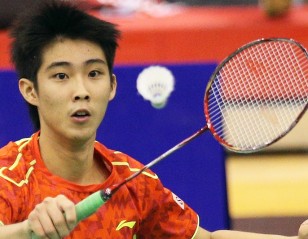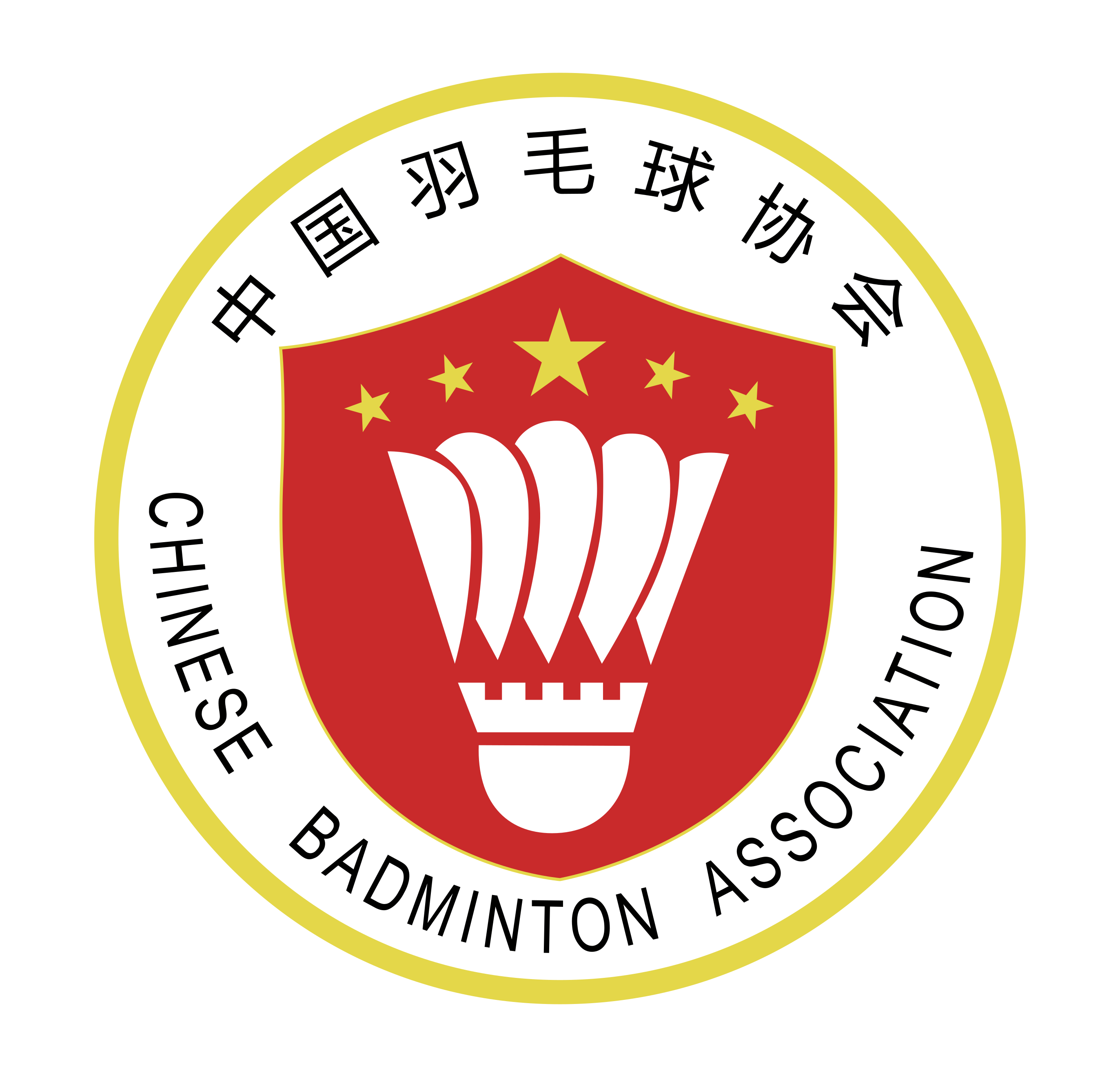
TOTAL BWF Thomas Cup Preview: Can Denmark Break the Jinx?
Sixteen of the strongest badminton teams in the world will battle for a trophy that has been so selective in its embrace, it has bestowed its blessings only on four nations in 67 years.
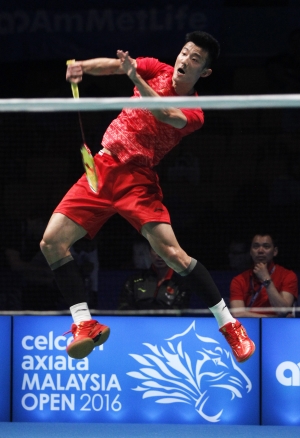 The Thomas Cup is one of the most handsome prizes in sport. Standing 71 centimetres, the silver-gilt trophy is claimed by the nation that exhibits not just individual skill, but great reserves of tenacity, composure and team spirit. Since being instituted in 1948-49, the Thomas Cup has been won by only four nations: Malaya/Malaysia, Indonesia, China and Japan.
The Thomas Cup is one of the most handsome prizes in sport. Standing 71 centimetres, the silver-gilt trophy is claimed by the nation that exhibits not just individual skill, but great reserves of tenacity, composure and team spirit. Since being instituted in 1948-49, the Thomas Cup has been won by only four nations: Malaya/Malaysia, Indonesia, China and Japan.
The last edition perfectly captured the essence of the Thomas Cup. Japan were underdogs to begin with, but they upset title favourites China in the semi-finals and got the better of Malaysia in a final that was gripping all the way. Never before had Japan even made the final. Team Spirit had been the vital ingredient that swung fortunes Japan’s way.
Despite their shock loss last time, China (Group A) go into this edition (15-22 May 2016) as the favourites, primarily because of their depth. In Chen Long, Lin Dan and Tian Houwei, the hosts have three of the best Men’s Singles players on the circuit; doubles options in Zhang Nan, Fu Haifeng, Hong Wei, Zheng Siwei, Li Junhui and Liu Yuchen give their side a formidable, well-rounded look. If China win the title, it will be their tenth overall but only their second on home soil after Wuhan in 2012.
Defending champions Japan will be hamstrung without two of the players who won them the 2014 title – Kento Momota and Kenichi Tago – and might struggle in Group A, especially since France could prove to be a handful. It will be up to the experienced Sho Sasaki and Takuma Ueda to inspire a youthful singles team comprising the likes of Kazumasa Sakai and Riichi Takeshita; the doubles, however, has a solid look in the hands of Hiroyuki Endo/Kenichi Hayakawa and Takeshi Kamura/Keigo Sonoda.
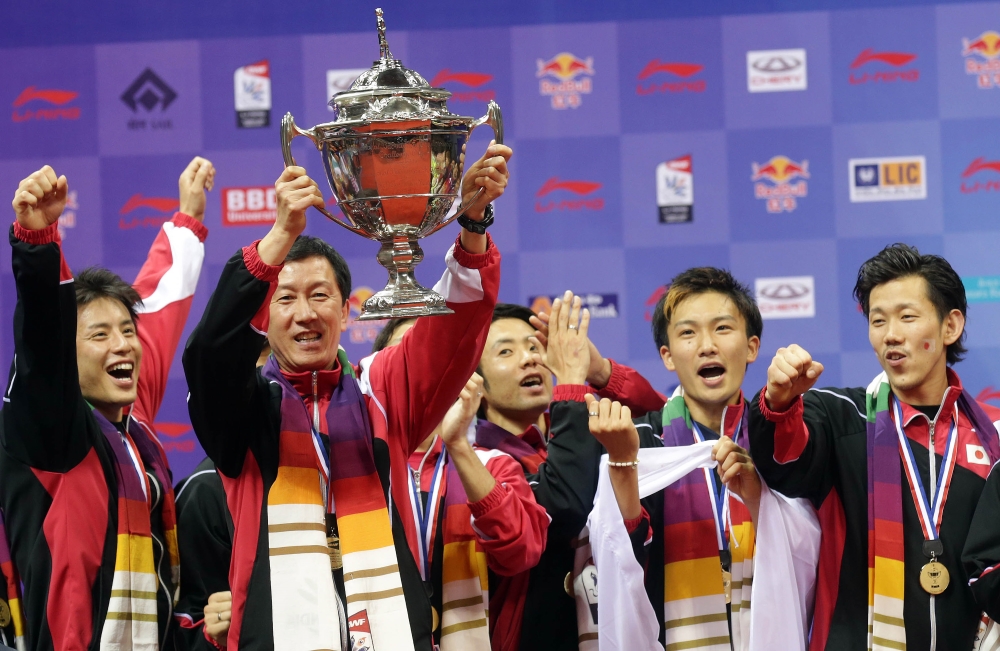
Perhaps the team that comes closest to China in terms of balance is Denmark (Group D). The European Champions have reached the finals eight times; the absence of a title must rankle. With Viktor Axelsen, Jan O Jorgensen (featured image) and Hans-Kristian Vittinghus in form, and with strong doubles players like Mads Pieler Kolding/Mads Conrad-Petersen and Kim Astrup/Anders Skaarup Rasmussen in the line-up, Denmark will sniff a chance at doing what their predecessors failed to. It remains to be seen who Mathias Boe is paired with, as that his regular partner Carsten Mogensen isn’t on the team due to medical reasons.
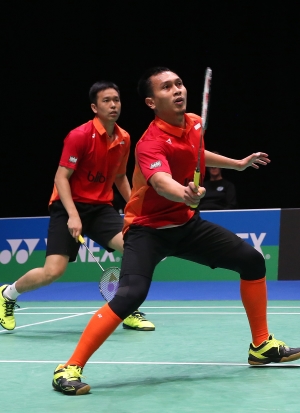 Indonesia (Group B) might well be the dark horses of the event. Three of their singles players – Jonatan Christie, Anthony Ginting and Ihsan Maulana Mustofa – are young and combative, while their doubles pairs – Mohammad Ahsan/Hendra Setiawan and Angga Pratama/Ricky Karanda Suwardi – are experienced and can be relied on, making the team a difficult proposition for any opponent. The team will be spearheaded by the experienced Tommy Sugiarto, who will attempt to follow in the footsteps of his Thomas Cup-winning father, Icuk Sugiarto. History will weigh heavily on the shoulders of the young team, with fans expecting them to emulate the deeds of their illustrious predecessors, who captured 13 titles overall – including five in a row from 1994 to 2002.
Indonesia (Group B) might well be the dark horses of the event. Three of their singles players – Jonatan Christie, Anthony Ginting and Ihsan Maulana Mustofa – are young and combative, while their doubles pairs – Mohammad Ahsan/Hendra Setiawan and Angga Pratama/Ricky Karanda Suwardi – are experienced and can be relied on, making the team a difficult proposition for any opponent. The team will be spearheaded by the experienced Tommy Sugiarto, who will attempt to follow in the footsteps of his Thomas Cup-winning father, Icuk Sugiarto. History will weigh heavily on the shoulders of the young team, with fans expecting them to emulate the deeds of their illustrious predecessors, who captured 13 titles overall – including five in a row from 1994 to 2002.
Korea (Group C) have been in the title round twice, in 2008 and 2012. The Koreans have dependable doubles pairs led by Lee Yong Dae/Yoo Yeon Seong but their singles are a trifle unreliable. But if Son Wan Ho and Lee Dong Keun can spring to form in time, the team can be hard to beat.
Of the others, Malaysia, Chinese Taipei and Hong Kong have enough resources to cause problems to the more fancied teams. Malaysia, led by the brilliant in-form Lee Chong Wei, will seek to rediscover the glory days of their predecessors who won five titles; the last of these being in 1992. Then there are teams like India, England, Thailand and France which have the talent to spring surprises.
Will it be the traditional powerhouses or emergent nations who will create history? The coming week will have the answers.
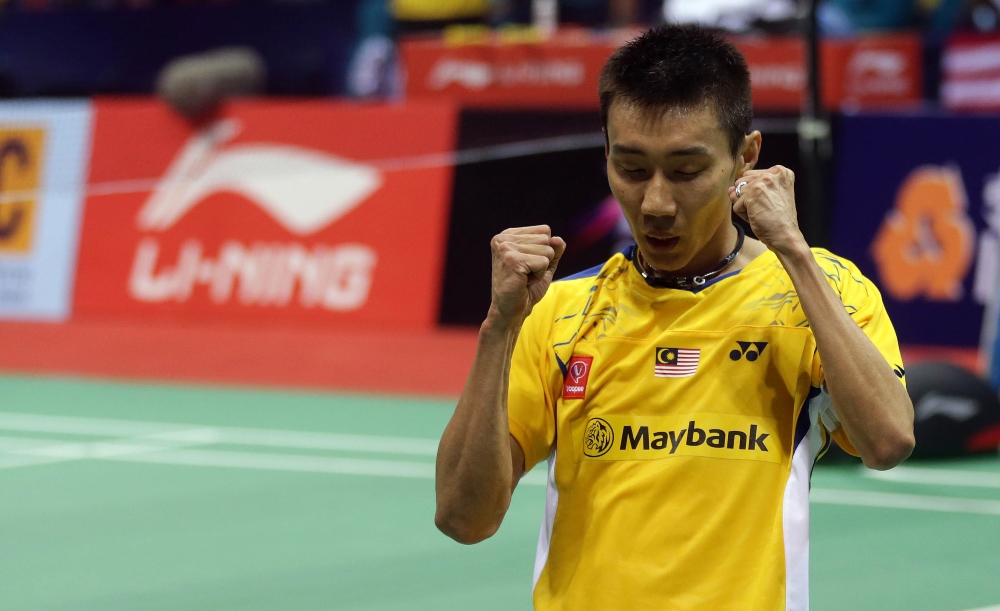
Groups:
Thomas Cup:
Group A: China, Japan, France, Mexico
Group B: Indonesia, India, Thailand, Hong Kong China
Group C: Korea, Malaysia, England, Germany
Group D: Denmark, Chinese Taipei, New Zealand, South Africa
Thomas & Uber Cup News
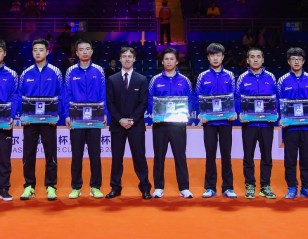
Li-Ning – A Stringing Success! 20 June 2016
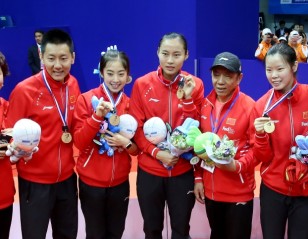
China Brook No Challenge – Uber Cup Review 27 May 2016
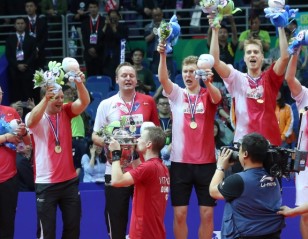
A Momentous Event for Europe – Thomas Cup Review 25 May 2016
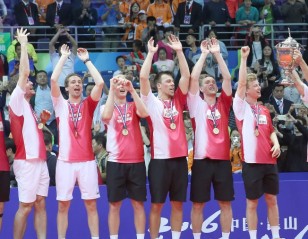
Denmark Crowned Kings of the World: TOTAL BWF Thomas & Uber Cup... 22 May 2016
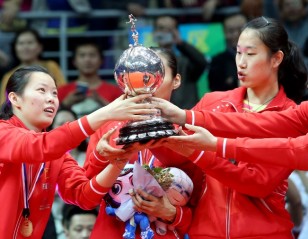
Title No.14 for China – TOTAL BWF Thomas & Uber Cup Finals... 21 May 2016

Denmark Fly High – Semi-finals Session 2: TOTAL BWF Thomas & Uber... 21 May 2016
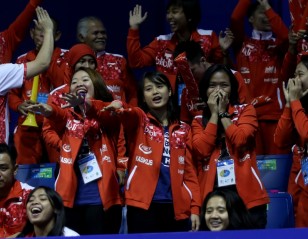
Indonesia Storm into Final – Semi-finals Session 1: TOTAL BWF Thomas &... 20 May 2016
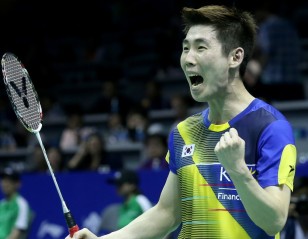
Korea Shock China; Japan Out – Quarter-finals Session 2: TOTAL BWF Thomas... 20 May 2016
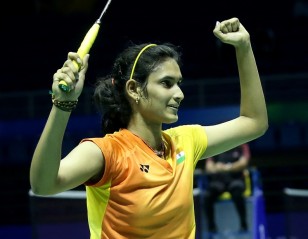
Shivani Aces it for India – Quarter-finals Session 1: TOTAL BWF Thomas... 19 May 2016
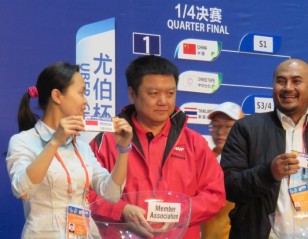
China Draw Korea in Thomas Cup Quarter-finals 19 May 2016
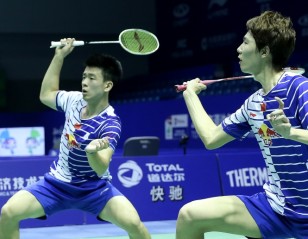
China Blow Away Japan – Day 4 Session 3: TOTAL BWF Thomas... 18 May 2016
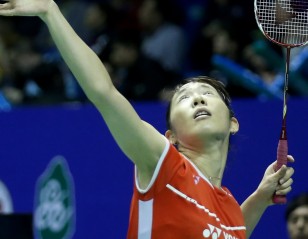
Japan Struggle to Beat India – Day 4 Session 2: TOTAL BWF... 18 May 2016
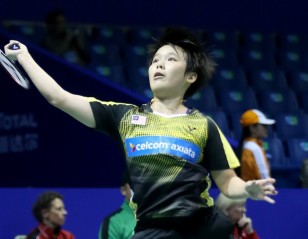
Denmark Top Group D – Day 4 Session 1: TOTAL BWF Thomas... 18 May 2016
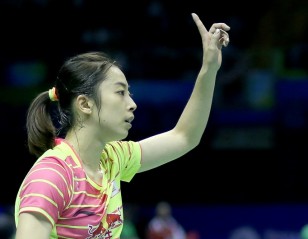
Indonesia Outclass Thailand – Day 3 Session 3: TOTAL BWF Thomas &... 17 May 2016
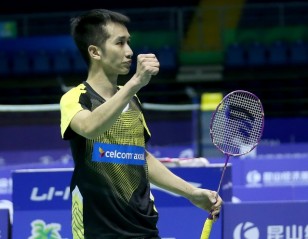
Korea Singed by Malaysian Singles – Day 3 Session 2: TOTAL BWF... 17 May 2016

Kjaersfeldt, Madsen Drive Danish Success – Day 3 Session 1: TOTAL BWF... 17 May 2016
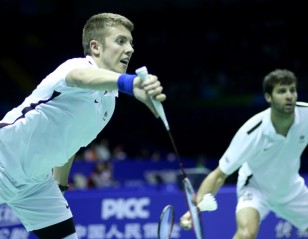
China Down Battling French – Day 2 Session 3: TOTAL BWF Thomas... 16 May 2016
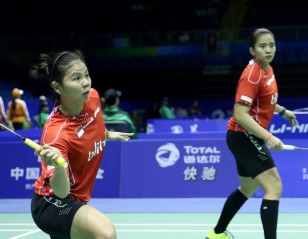
Indonesia Prevail Over Hong Kong – Day 2 Session 2: TOTAL BWF... 16 May 2016
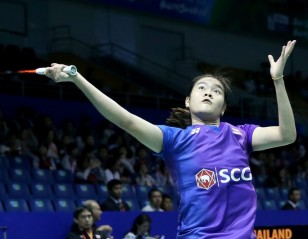
Thailand Continue to Cruise – Day 2 Session 1: TOTAL BWF Thomas... 16 May 2016
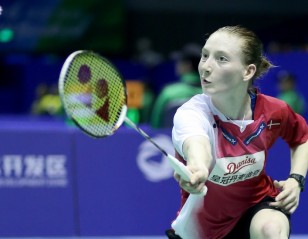
Madsen Swings it for Denmark – Day 1 Session 3: TOTAL BWF... 15 May 2016

Japan Shaken by Inspired France – Day 1 Session 2: TOTAL BWF... 15 May 2016
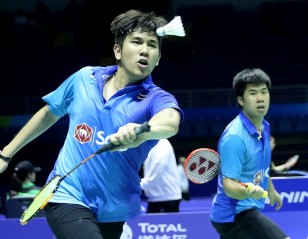
Strong Start by Thailand – Day 1 Session 1: TOTAL BWF Thomas... 15 May 2016
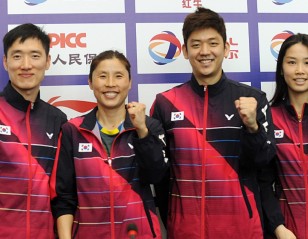
TOTAL BWF Thomas & Uber Cup Finals 2016: Opening Salvos Fired as... 14 May 2016
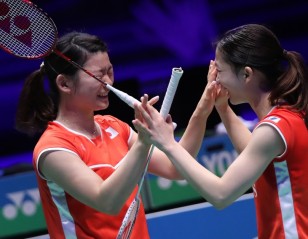
TOTAL BWF Uber Cup Preview: China, Japan Hold the Aces 12 May 2016
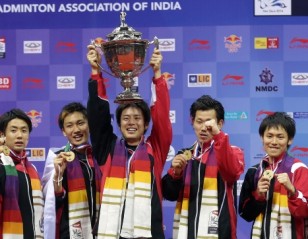
Japan Face French Obstacle in Thomas Cup Opener 19 April 2016
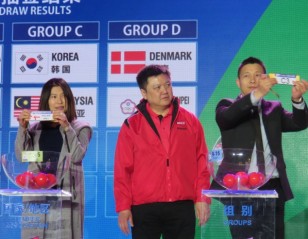
Powerhouses China, Japan in Group A of Thomas Cup 21 March 2016
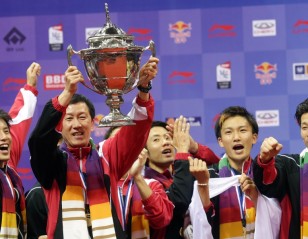
Defending Champions Japan Seeded 5th for Thomas Cup 4 March 2016
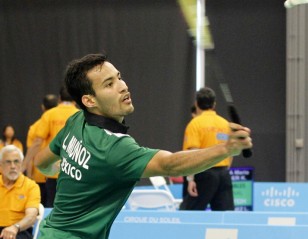
Mexico, New Zealand in Thomas Cup final round 23 February 2016

Indonesia, China Emerge Champions – Badminton Asia Championships finals 22 February 2016
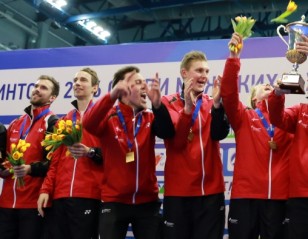
Denmark Unchallenged at the Top: European Men’s & Women’s Team Championships finals 22 February 2016
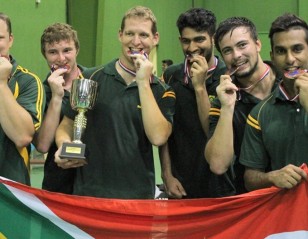
SA, Mauritius Crowned Champions: Africa Continental Team Championships finals 21 February 2016
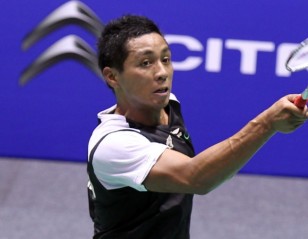
New Zealand, Australia Reign Supreme: Oceania Men’s & Women’s Team Championships finals 21 February 2016
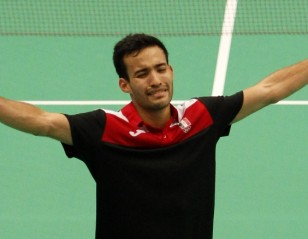
Mexico Clinch Men’s Title: Pan Am Team Continental Championships finals 21 February 2016
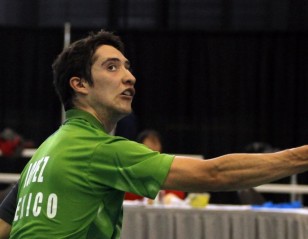
Mexico, Canada in Final: Pan Am Team Continental Championships – Day 3 20 February 2016
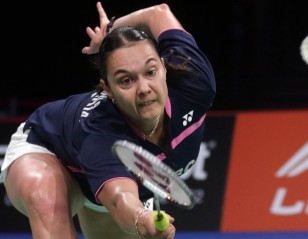
Bulgaria, Spain in Last-Four: European Men’s & Women’s Team Championships quarter-finals 20 February 2016
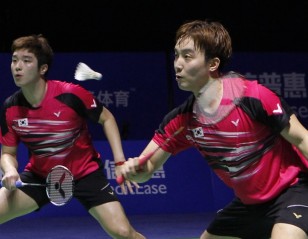
China Knocked Out – Badminton Asia Team Championships quarter-finals 20 February 2016
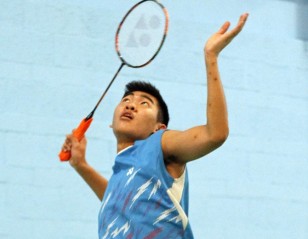
Garrido, Ho-Shue Shine: Pan Am Team Continental Championships – Day 2 19 February 2016
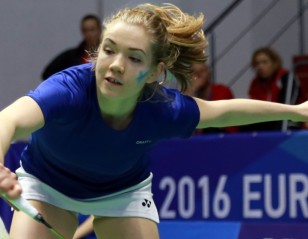
Finland in Quarter-finals: European Men’s & Women’s Team Championships – Day 3 19 February 2016
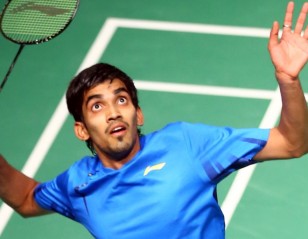
India Stun China: Badminton Asia Team Championships – Day 4 19 February 2016
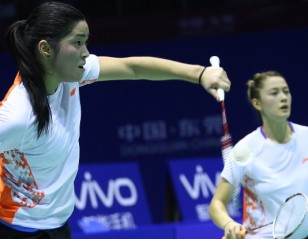
Australia Win Exciting Final – Oceania Mixed Team Championships 18 February 2016
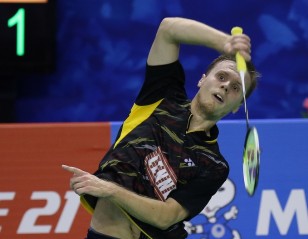
Estonia Edge Past Hungary: European Men’s & Women’s Team Championships – Day... 18 February 2016
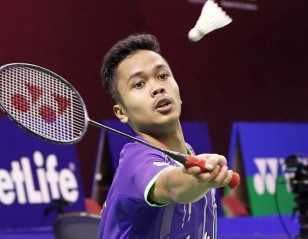
Indonesia Beat Chinese Taipei: Badminton Asia Team Championships – Day 3 18 February 2016
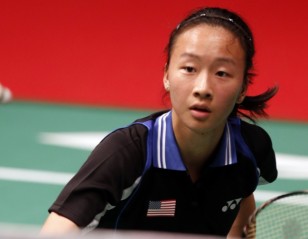
Iris Wang Guides USA to Win: Pan Am Team Continental Championships –... 18 February 2016
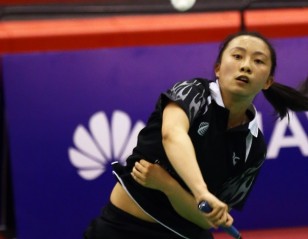
Easy for New Zealand: Oceania Mixed Team Championships – Day 2 17 February 2016
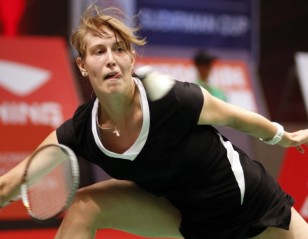
Narrow Win for Ukraine – European Men’s & Women’s Team Championships –... 17 February 2016
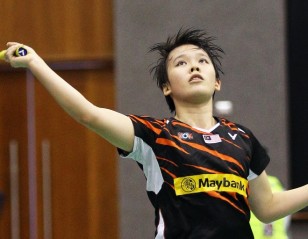
Close Shave for Malaysia: Badminton Asia Team Championships – Day 2 17 February 2016

Strong Start for New Caledonia – Oceania Mixed Team Championships Day 1 16 February 2016
